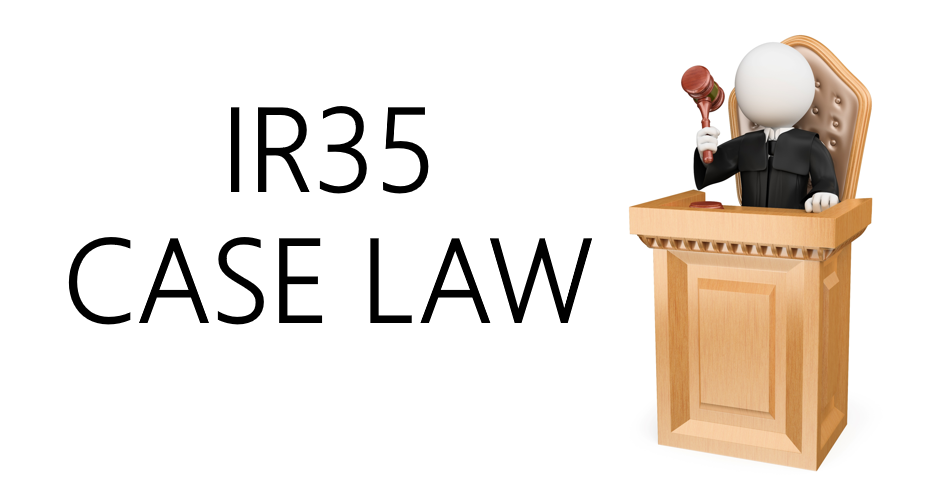
- HM Revenue and Customs (“HMRC”) appealed against a decision made by the First Tier Tribunal (“FTT”) to the Upper Tribunal (“UT”) in relation to IR35.
- The UT that found that under both hypothetical contracts, Mr Hawksbee of Kickabout Productions Limited (“KPL”), would have been an employee of Talksport Limited (“Talksport”).
- KPL is a personal service company owned by Mr Hawksbee, a radio presenter. During the tax years 2012-13 to 2014-15, KPL entered into contracts with Talksport under which KPL agreed to provide the services of Mr Hawksbee as a presenter on Talksport’s Radio’s “Hawksbee & Jacobs show” (“the Show”). The Show was broadcast every weekday for three hours (between 1pm and 4pm).
- HMRC formed the view that Chapter 8 of the Income Tax (Earnings and Pensions) Act 2003 (“ITEPA 2003”), commonly referred to as “IR35” or the “intermediaries legislation” applied.
- Consequently, HMRC made an assessment to KPL for income tax purposes (unpaid Pay As You Earn “PAYE”) and issued notices of determination for national insurance contributions of £143,126 for the years 2012/13, 2013/14 and 2014/15.
- KPL appealed the assessments raised by HMRC and in order to determine whether IR35 applied, the FTT, had to determine the following matters:
- Step 1 - it had to find the terms of the actual contractual arrangements and relevant circumstances within which Mr Hawksbee worked.
- Step 2 - it had to ascertain the terms of the “hypothetical contract” postulated by Chapter 8 of ITEPA (section 49(1)(c)(i)) and the counterpart legislation applicable to national insurance contributions.
- Step 3 - it had to consider whether the hypothetical contract would be a contract of employment.
- Upon evaluation of the condition of the contracts, the FTT found that Mr Hawksbee was genuinely self-employed.
- HMRC appealed the decision to the UT, which reconsidered the hypothetical contracts between Mr Hawksbee and Talksport. The UT focused on the points which the FTT had considered which pointed against employment status as well as those that it regarded as ‘neutral’.
- The UT considered that under the hypothetical contracts:
- Mr Hawksbee would not be taking material “financial risk” or, to the extent he was, that this was anything other than a slender indication of self-employment status
- The 2-year duration with a four-month notice period was a strong indicator of employed status and not a “neutral factor” as the FTT had suggested
- The lack of employment rights did not carry great weight in the overall decision
- The fact that Mr Hawksbee had been presenting the Show for 18 years strongly pointed in favour of employed status
- Talksport did have an obligation to provide Mr Hawksbee with work
- When considering the factor of “control”, UT Judges referred to the following statement he made in Professional Game Match Officials Limited v HMRC;
“A practical limitation on the ability to interfere in the real-time performance of a task by a specialist, whether that be as a surgeon, a chef, a footballer or a live broadcaster, does not of itself mean that there is not sufficient control to create an employment relationship”
- Talksport did have control over where and when Mr Hawksbee did his work. Although Mr Hawksbee had editorial and content control, Talksport possessed a “sufficient framework of control” over Mr Hawksbee
- The UT concluded that, under both hypothetical contracts, Mr Hawksbee would have been an employee of Talksport. The appeal was upheld and KPL’s liabilities were reinstated.
View the full FTT judgement here.
View the full UT judgement here.
Aspire Comment
This case further demonstrates the complexity in determining whether IR35 applies and the multitude of factors that must be considered on a case by case basis. It is evident from the differing tribunal judgements that employment status is subjective and is not something that can be easily defined by the use of a tool, or even agreed between judges during a formal court appeal process.
With the off-payroll working reforms due to be introduced to the private sector on 6 April 2021, it is imperative that businesses have considered their position in relation to IR35 and have taken the appropriate measures to prove that you have taken reasonable care in making Status Determination Statements in the event of a challenge. This may include training internal staff to understand the upcoming changes to aid the business in its IR35 processes.
One important aspect of this is to ensure that you have robust contracts in place which accurately demonstrate the reality of the arrangement.
Aspire can offer bespoke IR35 training to prepare you and your staff ahead of April 2021. If you need any support on IR35, due diligence or any other employment matters, call us today on 0121 445 6178 or email enquire@aspirepartnership.co.uk.